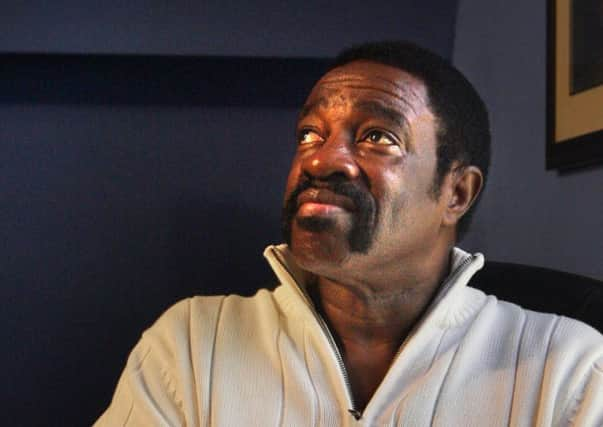Obituary: Ben Cauley, musician


Ben Cauley was a musician, singer and songwriter known primarily for his trumpet playing as a member of the Bar-Kays, the group founded in Memphis, Tennessee. Created as a backing group who played on many of the records issued by seminal soul label Stax in the mid-1960s, the Bar-Keys were most recognisable for their crossover hit Soul Finger, which appeared in April 1967.
Personally chosen by Otis Redding as his live backing band, the Bar-Kays – and Cauley in particular – were also associated with one of the most tragically pivotal moments to hit the soul music scene of the era.
Advertisement
Hide AdAdvertisement
Hide AdOn 10 December, 1967, in bad weather, the Beechcraft H18 light aeroplane flown by Redding between engagements crashed into Wisconsin’s Lake Monona, killed the singer and every member of the Bar-Kays present except Cauley.
Although he would reform the band and continue to play, the incident remained with Cauley professionally and personally.
Born in South Memphis in 1947, Cauley sang in his local church choir with his mother and began playing trumpet while at school.
While a student at the city’s Booker T Washington high school, he met the other members of the group which would go on to be the Bar-Kays.
Too young to legally be on the premises, the band – Cauley, guitarist Jimmie King, organist Ronnie Caldwell, saxophonist Phalon Jones, bassist James Alexander and drummer Carl Cunningham – nevertheless began playing the soul clubs of Memphis under the name the Imperials.
Before long the group were signed to Volt, the subsidiary label of seminal Memphis soul imprint Stax, which had been a powerhouse of the city’s music scene since Carla Thomas’ hit Gee Whiz (Look At His Eyes) in 1961.
As synonymous with the black soul sound of the decade as Detroit’s Motown, Stax was actually formed by white brother and sister duo Jim Stewart and Estelle Axton in 1959, and the conscious breaking down of racial divisions was part of its goal. At this point the Imperials changed their name to the Bar-Kays.
For much of the decade, the interracial group Booker T and the MGs had been Stax’ backing band, playing on records by Wilson Pickett, Bill Withers and Sam & Dave. When things began to happen for Cauley and the Bar-Kays in the mid-60s, they happened fast. The MGs’ leader Booker T Jones was also an alumnus of Booker T Washington high (he was named after his father, who in turn was named after the African-American educator), and when the Bar-Kays arrived at Stax, he and the rest of the elder band began training them up as the label’s successor house group.
Advertisement
Hide AdAdvertisement
Hide AdIn 1967 the Bar-Kays released their debut single Soul Finger, a top 20 hit on the mainstream US chart which has since become accepted as a part of the era’s classic canon.
Cauley’s signature opening trumpet blast was his take on the nursery rhyme Mary Had a Little Lamb, which the group built the song around during a studio jam. “Its pull is gravitational,” said the respected music website Pitchfork of the song recently, calling it “one of the most haplessly infectious songs of the decade”.
It only took one of the group’s enthusiastic live shows for Redding to be convinced. He requested that they become his backing band for dates across the USA, including at New York’s famed Harlem Apollo.
Incredibly, at this point most of the group were still at school; Redding offered to take them off in his plane on Friday afternoons for weekend engagements and return them home by Sunday. It was on one of these trips that tragedy occurred.
The precise details surrounding the crash were never discovered, but Cauley later recalled waking up seconds before the plane hit, unhooking his seatbelt and grabbing the seat cushion which kept him afloat.
A non-swimmer, his life was saved by the fast reactions of the emergency services.
The crash claimed the lives of eight, including Redding, his manager and four of the Bar-Kays. Cauley survived, together with Alexander (who had taken a commercial flight), and they went on to reform the Bar-Kays with new players around them.
“A lot of our fellow musicians cared about the Bar-Kays,” Cauley told the Memphis Commercial Appeal, “and they helped us put the band back together.”
Advertisement
Hide AdAdvertisement
Hide AdTired of being separated from his young family, he left the group in 1972 and went on to play session trumpet for the rest of his life, for artists as diverse as BB King, Hank Williams and the Replacements. His final work was on the Stax-style track Lover’s Plea on Keith Richards’ 2015 solo album Crosseyed Heart.
Once more, Cauley survived a brush with death in 1989, when he suffered a massive stroke and was given three days to live, a matter of months after playing a trumpet requiem at the site of the old Stax studio when it was bulldozed.
Eventually learning to walk, talk and play trumpet again, he filled his later years performing in church, as well as at the Da Blues restaurant in Memphis International Airport and at the Stax Museum of American Soul.
In 2007 Cauley revisited the Wisconsin site of the plane crash which nearly took his life, remarking at the time. “Lord knows, it just really touched me to be there. I had to see it,” he said.
In 2013 he performed his final show with Alexander and the Bar-Kays as they were inducted into the Memphis Music Hall of Fame. He is survived by five daughters and two sons.